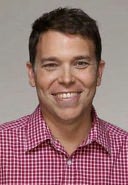- Shopping Bag ( 0 items )
-
All (125) from $1.99
-
New (13) from $6.54
-
Used (112) from $1.99





Overview
Both immediate and timeless, Abraham tells the powerful story of one man's search for the shared ancestor of Judaism, Christianity, andIslam. Traveling through war zones, braving violence at religious sites, andseeking out faith leaders, Bruce Feiler uncovers the defining yet divisive role that Abraham plays for half the world's believers. Provocative anduplifting, Abraham offers a thoughtful and inspiring vision of unity that redefines what we think about our neighbors, our ...